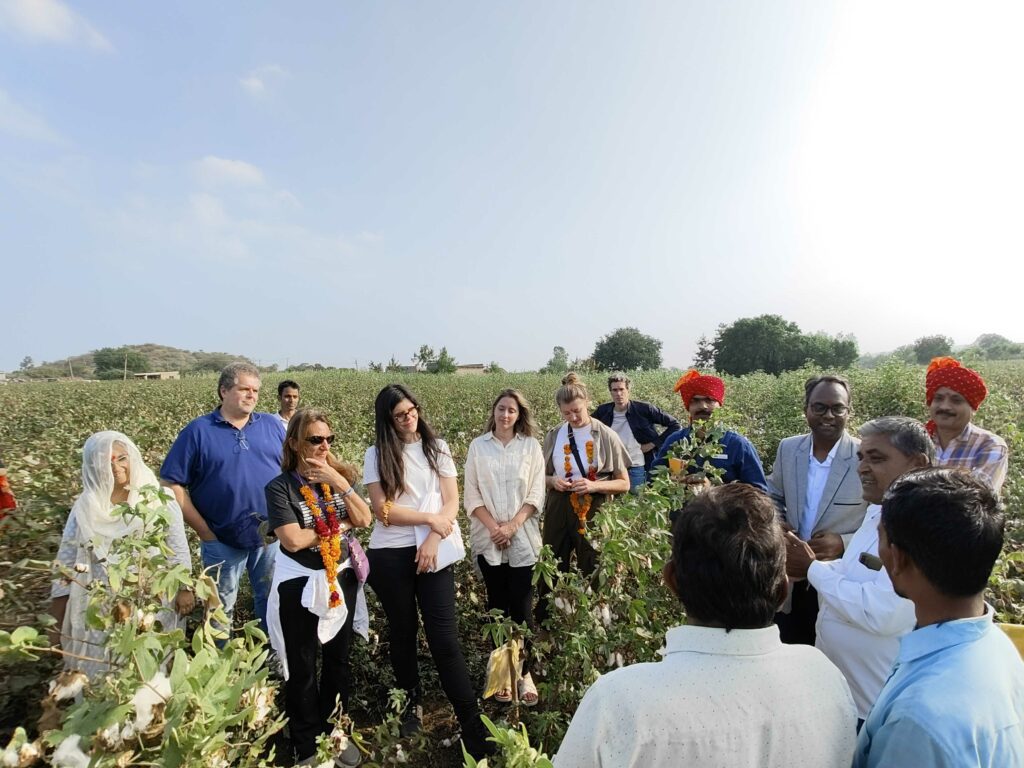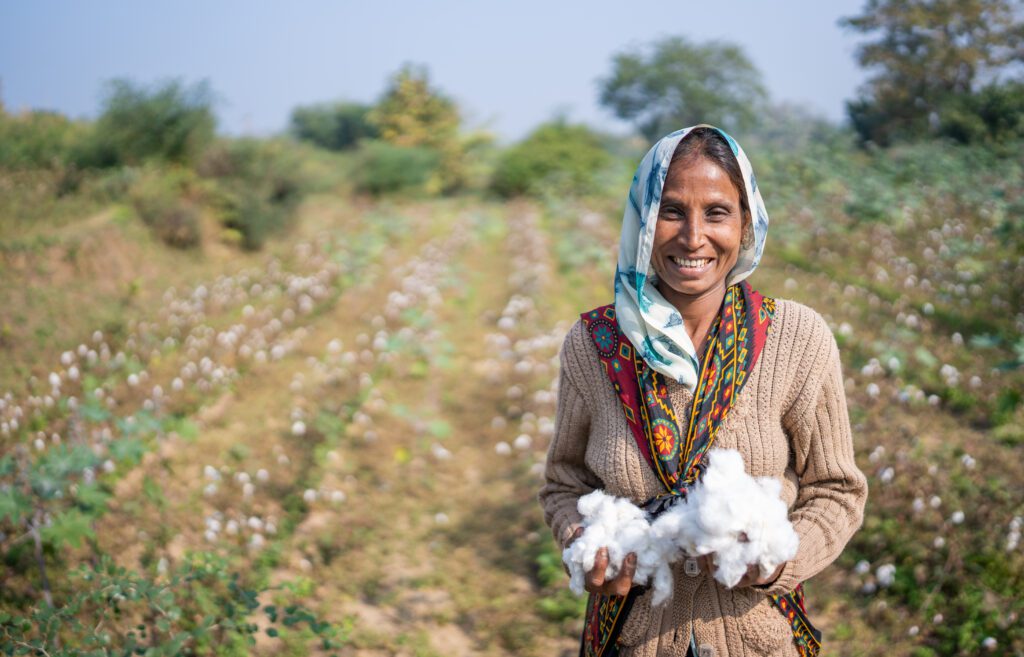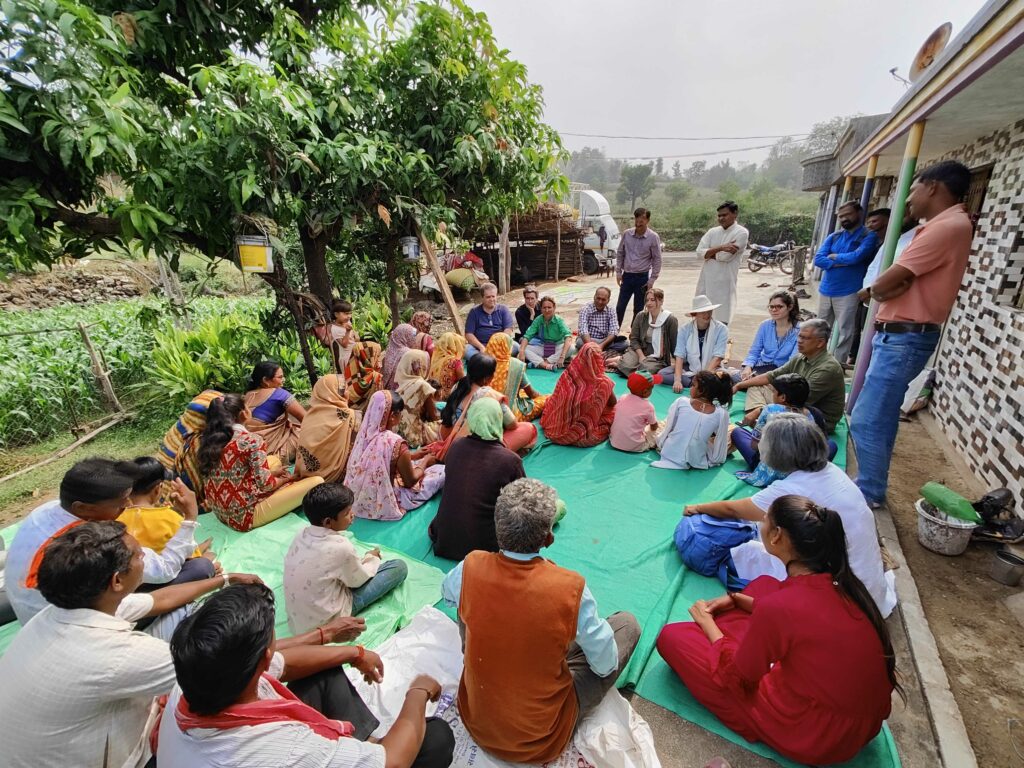Since OCA’s establishment, our ambition has been to support and accelerate the journey to organic cotton farming, maximising the regenerative power of the organic approach on farmlands and farming communities. Our primary aim is to empower more farmers to harness the potential of organic and regenerative practices in cotton cultivation, fostering a holistic transformation as a nature-based solution for people and the planet.
OCA’s market-driven Farm Programme is expanding its reach to more farmers every year, intensifying the shift towards organic and regenerative practices with the support of our Contributors. Alongside our collaboration with key value chain actors, OCA works with donors and foundations that act as a force multiplier in our programmes. With support from our donor partners, we are able to launch new resources to deepen our impact as well as match-fund robust training programmes for farmers in the critical stage of converting from conventional to organic farming.
In 2021, OCA became the first cotton programme partner to the Regenerative Fund for Nature, supported by Kering and Conservation International. The three-year project in India involves providing farmers with training, access to non-genetically modified cottonseed, a secure market through commitments from international brands, premium prices for in-conversion cotton, and covering certification and testing fees. Additionally, we aim to enhance regenerative practices among certified organic farmers through demonstrative farms, and showcase the environmental and socio-economic benefits of organic and regenerative cotton farming through testing and data.
The project is a unique opportunity to support the transition of a significant number of Indian cotton farmers to organic agriculture over a three-year timespan, while also maximising the adoption of regenerative practices by organic farmers, using the proven model from OCA’s Farm Programme.
Our impact
Since the start of 2023, OCA introduced regenerative organic cultivation through 471 demonstration farms and seed trial plots across more than 250 villages in Madhya Pradesh, Odisha, Rajasthan, and Gujarat.
The demo plots act as learning sites offering farmers a hands-on experience with innovative farming techniques. Specifically, they showcase crop yields post elimination of agrochemicals by focusing on a holistic and regenerative approach. The demonstration plots are used to showcase and champion a range of regenerative practices that further improve environmental and socio-economic outcomes for the organic farmers in OCA’s programme.
Thanks to this initiative, we have empowered
“The success we’ve achieved in our implementation of the initial phase of our work with the Regenerative Fund for Nature underscores the positive change we can enact when we focus on scaling in-conversion cotton,” said Jyoti Sharma, Head of Region, South Asia at OCA. “We are grateful for the support from our funding partners, and we look forward to furthering these impactful initiatives in the years to come.”
Understanding the field realities
At the end of 2023, OCA hosted a field visit by funding partners Kering and Conservation International to get a firsthand look at the project’s impact. The field experience included exposure to organic practices, such as community-owned bio-input production centres. Discussions with farmers and with OCA’s Implementing Partners focused on addressing common challenges in transitioning to organic practices, efficient solutions and identifying new opportunities. The visits also highlighted the crucial support for market linkages during the transition to organic farming.
“Our visit to OCA’s field projects underscored the profound impact of partnership within CI’s Regenerative Fund for Nature. We heard directly from farmers the benefits they have experienced in transitioning to regenerative cotton. The resounding conclusion across several project sites is the adoption of regenerative practices increases income, improves food diversity, and enhances community and family health. Additionally, it promotes biodiversity, benefits local wildlife, and improves soil quality. We extend our gratitude to OCA and partners for their vital work across regions, truly showcasing the transformative impact of regenerative practices,” said Virginia Borcherdt, Sr. Director, Sustainable Fashion, Conservation International.
As we continue championing regenerative practices within organic cotton farming, the results we have seen serve as a strong foundation for future initiatives. Increased investments—from the private sector and donors alike—are vital to accelerate in-conversion projects, empowering more farmers to confidently transition to organic cotton farming. We welcome the ongoing funding support to deepen our impact, allowing us to expand demonstration farms, enhance capacity building, and introduce innovative techniques for farmers embracing organic and regenerative organic practices.




